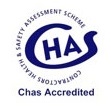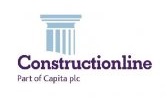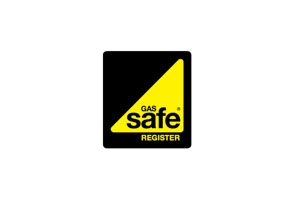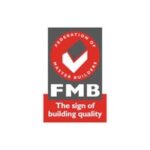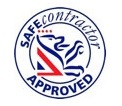Bakers of Danbury work closely with leading insurance companies, specialist loss adjusters and engineers to repair all types of insured risks to domestic, commercial and industrial premises, usually whilst still occupied.
The insurance repair works can range from a full underpinning scheme, to repairing severe damage caused by vehicle impact, fire, flooding or an escape of water.
We are sympathetic at this difficult time when making an insurance claim, so work closely with building owners and/or occupants to complete the repairs with minimal disruption and inconvenience.
At Bakers of Danbury, we are proud of our reputation for providing high quality insurance repair works whilst providing the best value for the insurance company.
If you have a Subsidence Claim
Our surveyor, or a person appointed by your insurance company will visit your home and prepare a schedule of remedial work, sometimes referred to as the scope document.
Only repairs required to reinstate your home to the condition it was before the loss occurred.
Regrettably, our agreement with your insurance company precludes us from carrying out any unscheduled work.
Additional minor damage occurring in a previously scheduled room will normally be carried out. If there is further significant damage or damage affecting unscheduled rooms you should contact your insurance company or their representative.
Your insurers may ask us to collect the policy excess on their behalf. Payment can be made cheque, debit or credit card. Unfortunately, we are unable to start work or leave equipment at your property until this payment has been received.
When instructed by your insurance company we will contact you to agree a start date. At this time we will inform you of the estimated duration of the works; this will be confirmed, usually by E-mail, Telephone Call, SMS or letter.
We will try to keep to the agreed dates however; it is dependent on other work finishing on time. We will of course keep you informed of any likely delays.
The duration of the work is based on the agreed schedule. There are a number of factors that may affect this, for example, variations to the schedule as a result of unforeseen work.
Ideally we will require two areas to be made available at the time preferably one of which will be inside. Weather permitting we would normally undertake the external and internal work at the same time. We generally start at the top of the property and work to the bottom but this can be changed if you prefer.
Our work will be dusty. Please remove light furniture, soft furnishings, fragile or valuable items and electrical goods from the work area. Pictures should be taken down (picture hooks will be left in place unless we are specifically requested to remove them).
Yes unless the property is deemed uninhabitable, for example when the kitchen or bathroom are out of use for long periods of time. We are accustomed to working in occupied property and within reason, will try to accommodate any special requirements that you may have.
We cover floors with a heavy duty polythene membrane secured to the floor or carpet with low tack adhesive tape. We also lay impact resistant protection over wooden or ceramic flooring. Heavy furniture that is left in the work area will be protected with dust sheets and polythene.
Reinstatement will be carried out on a like for like basis. Joinery (skirting boards, dado rails, picture rails etc.) will not normally be redecorated unless it forms part of the scheduled works, if joinery does form part of the schedule of works then we will only key the surface to enable us to apply paint; we do not rub down woodwork to remove existing defects i.e. runs and gouges.
Generally an allowance of £ 25 per m2 is provided for ceramic tiles and floor tiles, £15 m2 for vinyl floor tiles and vinyl sheet flooring covering, however these figures may vary dependant on your insurance company.
Generally £17 per roll on patterned paper and £10 on Anaglypta paper (patterned and painted) - Lining and woodchip are chosen by us to match existing thickness and quality - £8 per 10m roll is included for the replacement of existing decorative boarders, however these figures may vary dependant on your insurance company.
The rates provide for Dulux paint or similar ICI manufactured paint. Our operatives will have colour charts to assist you in making your choice of paint.
Please contact your insurance company or their representative for advice before the works begin.
No, but please provide us with as much information as possible, such as the suppliers and/or manufacturers references along with any British Standard numbers if possible. Most suppliers will let you have wallpaper samples which can be useful.
Please let us know in advance. We will provide an estimate and if acceptable you will be asked to sign an acceptance and order form and return it together with payment for the full amount in advance of the works starting.
No, this would be deemed as betterment by your insurance company. We are unable to carry out any unscheduled work.
Your Contracts Manager has overall responsibility for the repairs phase of the claim. They are assisted by a Field Supervisor who will visit your property from time to time.
Our admin support team will be able to answer most queries relating to the work. Your Field Supervisor and Contracts Manager will answer any technical or procedural queries.
If you are not happy with the scope of works that have been scheduled you must contact your insurance company or their representative for advice. We are not authorised to deal with scope issues.
Please discuss this with our repair technicians, Supervisor or Contracts Manager. We would prefer to deal with any workmanship issues as soon as they arise as to rectify afterwards could cause unnecessary disruption.
If you have a serious problem or complaint we would ask you to contact your Contracts Manager who will give you their personal attention.
You will be asked to sign a satisfaction form. You are not being asked to satisfy yourself as to the structural adequacy of the works only to confirm that the work has been completed to an acceptable standard.
Generally this is due to plaster shrinkage causing hairline cracks to appear between the new and old plaster. Some minor cracking may occur due to differential thermal movement. This type of cracking is cosmetic and quite normal. If you are still concerned and suspect further movement then please contact your insurance company or their representative for advice.
If you have a General Perils Claim
(As above with the following exceptions)
Before the surveyor attends a Drying Technician will normally visit your property and assess the damage, remove water damaged building materials and if necessary install drying equipment.
Drying can take anything from one to several weeks dependant on the severity of damage, the building fabric and the amount of water absorbed. The length of time the equipment is left running will also influence drying time.
The drying equipment consumes a similar amount of energy to a domestic fridge. As an example a large dehumidifier would cost approximately £4.00 per day to run. Your insurer would normally reimburse you for the additional cost of electricity consumption whilst equipment is at your property.
A drying technician will visit, usually once a week, to monitor the drying progress. When the building fabric has reached acceptable moisture levels a drying certificate will be issued.
A member of the customer support team will contact you to discuss and make arrangements to start the reinstatement work. Work will usually commence within ten days following the surveyor visit or after the certificate has been issued.
Accreditations

